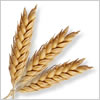Your cart

 China: China’s top beverage body calls for lifting tariffs off Australian barley
China: China’s top beverage body calls for lifting tariffs off Australian barley
A peak Chinese industry body has called for steep tariffs on Australian barley to be lifted, arguing costs for the country’s beer manufacturers have soared due to global supply disruptions at the same time as domestic production has halved, AFR reported on April 17.
The China Alcoholic Drinks Association (CADA) made the comments in an application to China’s Commerce Ministry, which said this had triggered a review of the tariffs imposed on Australian barley imports in 2020 as part of political sanctions on a range of goods.
The ministry on April 14 formally confirmed the Albanese government’s earlier announcement that China was reviewing the tariffs. While Foreign Minister Penny Wong said Australia had agreed to suspend its World Trade Organisation appeal against the tariffs for three months, the Commerce Ministry statement said the review could last up to one year.
In a formal application, CADA argued major changes had taken place in China’s domestic barley market since the tariffs were imposed in 2020 and anti-dumping measures were no longer necessary.
It said imported barley prices had soared due to the COVID-19 pandemic and the war in Ukraine, while domestic malting barley production had halved from more than 2 million tonnes in 2009 to less than 1 million tonnes.
“The national supply of barley cannot meet the domestic demand,” the application, which was published on the Commerce Ministry’s website late on April 14, said.
CADA’s application and the fact Beijing allowed it to be made public bolsters the likelihood that the Commerce Ministry’s review will find in favour of lifting the tariffs imposed in 2020. CADA is the same body that initiated China’s anti-dumping investigation into Australian wine, which also resulted in steep tariffs.
Scott Waldron, an agricultural economist at the University of Queensland, said while China could accept the CADA recommendation on the pretext that industry conditions had changed, the reality was it had realised that economic coercion against Australia was not working.
“Because they have made this document public, they are likely endorsing it as part of their review,” Mr Waldron, who has been following the trade sanctions closely, said.
“This has been a series of bungles [by China]. They got their case to the World Trade Organisation wrong. If there is movement on barley and wine, they are going to live with that loss of face and the lesson [to other countries] that coercion doesn’t work.”
The CADA application said Australia accounted for 60 to 70 per cent of China’s total barley imports before the tariffs were imposed. Since then, there had been shifts to importing barley from Canada, France and other countries.
Citing China Customs statistics, it said the average price of imported barley into China in 2022 was 356.30 yuan per tonne, a 53 per cent increase from 232.67 yuan in 2020, putting “huge pressures” on malt producers and the beer industry. “There are few sources, unstable supply, and high risk of freight and exchange rate changes,” the application said.
CADA’s application was critical of China’s barley growers, who it said had failed to upgrade technology, had low production efficiency and were unwilling to plant. It also noted there was a limited supply of arable land.
“The shortage of ... supply and the serious mismatch between supply and demand cannot effectively meet the production needs of domestic downstream processing industries,” it said.
It said while China had expanded malt capacity, that was limited to coastal areas such as Guangdong, Guangxi, Jiangsu and Hubei, and the demand for imports was increasing.
It noted China imported more than 80 per cent of its barley needs.
China has a history of using tariffs and other restrictions as political punishment, but also as measures to protect its domestic industry.
The Albanese government announced last week that China had agreed to review the tariffs imposed in 2020 after an 18-month investigation. In exchange for the backdown by Beijing, the federal government agreed to suspend its appeal against China with the WTO.
A favourable outcome should be a guide for resolving the other Australia-China trade case before the WTO, involving tariffs on Australian wine, Senator Wong and Trade Minister Don Farrell said.
In 2020, China’s Commerce Ministry accused Australian grain growers of dumping barley, hurting Chinese producers. Beijing imposed an 80.5 per cent tariff on barley, sending Australian growers scrambling to find alternative, less lucrative markets.
Barley sales to China had been worth $916 million in 2018-19 before it became the first Australian commodity hit by China’s sanctions.
There are now hopes China will remove restrictions on other Australian products including lobster, cotton, beef and wine. Some Australian coal is now being shipped into China after a two-year ban, while some timber exports have also been approved.
While CADA also represents China’s wine industry, it is unlikely to support abolishing wine tariffs as they would undermine its domestic producers.
뒤로
E-malt.com, the global information source for the brewing and malting industry professionals. The bi-weekly E-malt.com Newsletters feature latest industry news, statistics in graphs and tables, world barley and malt prices, and other relevant information. Click here to get full access to E-malt.com. If you are a Castle Malting client, you can get free access to E-malt.com website and publications. Contact us for more information at marketing@castlemalting.com .





